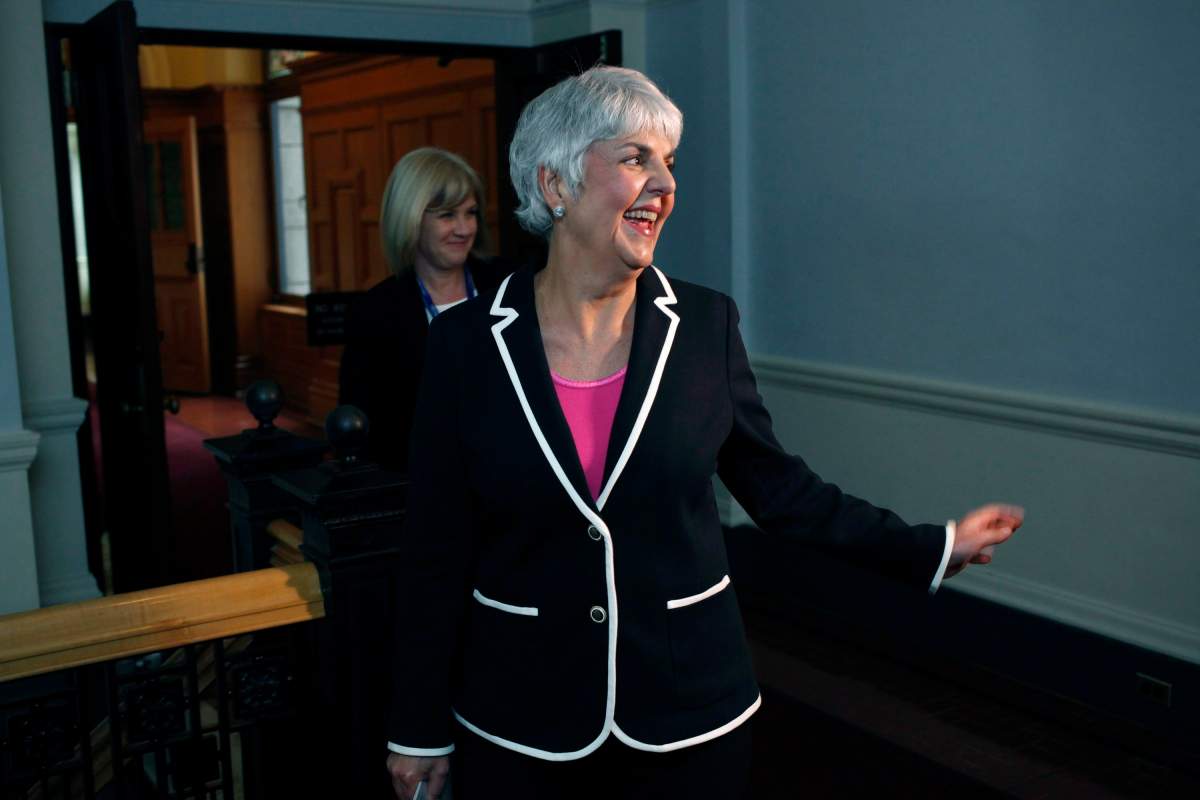B.C. Finance Minister Carole James says the province hopes to have additional data on housing trends once the speculation tax comes into full effect in 2019.

In a wide-ranging, year-end interview with Global News, James says one of the problems her government is dealing with in addressing the affordability crisis is there has been very little information collected.
“One of my great frustrations is the lack of information that was available on the issue of housing,” James said. “One of the things that will be coming out of all of our changes is that we are going to have better data.”
WATCH BELOW: B.C. Finance minister says not addressing housing crisis ‘was not on’ following speculation tax backlash

The plan is for the provincial government to track the number of homes put onto the market as rental units due to the speculation tax. The tracking will allow the government to have a better understanding of how many properties are sitting empty and how big a problem the rental market shortage is.
“I have had someone in my community who didn’t want to pay the speculation tax, who has now rented their place out,” James said.

Get daily National news
“That is more anecdotal. But we will have more information once the speculation tax is in place and once we start gathering that. I think that will help refining our next steps for the 30-point housing plan.”
James says the provincial government has been making financial decisions based on three general priorities: affordability, improving services and building a sustainable economy.
The province is now in the midst of preparing Budget 2019, which will be presented in the legislature in February. There have already been some clues on what will be in the budget, including funding for the incentive programs associated with the Clean BC plan.
WATCH BELOW: B.C. Finance minister says affordability still top budget priority for province

“If there is one thing I have learned in this job, is that it is pretty rare that something crosses my desk that isn’t worth funding,” James said.
“So setting priorities is one of the most important keys here. As you know, in the last budget we set the priority of dealing with affordability.”
The budget won’t be without its problems. The province is struggling to get a grips on growing losses at ICBC. The public insurer lost $1.3 billion in the last fiscal year and is forecast to lose more than $800 million this year.
“We are not going to fix it overnight and it is a piece I am watching very closely in the budget,” James said. “It is also why I built in so much prudence in the budget. We are making sure we have those dollars for any issue that may arise.”
ICBC is not the only fiscal problem that was handed to the NDP from the previous B.C. Liberal government. When the current government came into power, disability rates had been largely ignored for more than a decade.
WATCH: B.C. Finance minister says disability rate changes under consideration for 2019 budget

The province is looking at changing the funding model for disability rates including potentially pegging annual increases to inflation.
“It is a priority for us and it is on our list of areas that we need to review and that we need to include as part of the poverty reduction plan,” James said. “We are certainty taking all those ideas into account.”








Comments